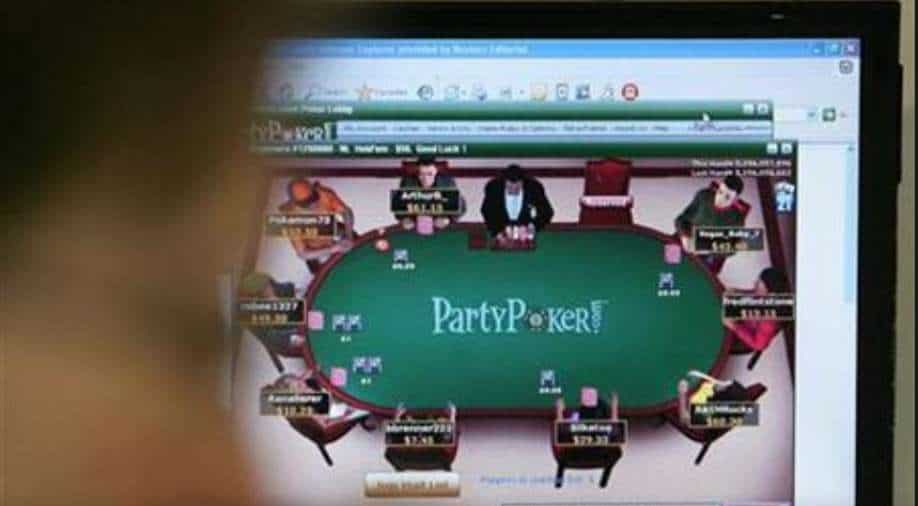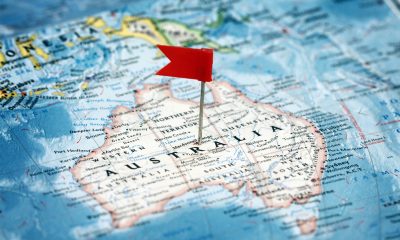Latest News
New Study Shows Online Gambling Soared During Lockdown, Especially Among Regular Gamblers

According to a new research, regular gamblers were more than six times more likely to gamble online compared to before the COVID-19 pandemic.
The study, led by the University of Bristol and published on May 17 in the Journal of Gambling Studies, showed regular male gamblers were particularly prone to gambling more often online during the public lockdown in the UK, compared to their previously reported gambling habits.
Although overall men and women gambled less frequently during the lockdown, partly due to betting shops being closed, some forms of gambling increased. For instance, usage of online gambling, including poker, bingo, and casino games, grew six-fold among regular gamblers. Respondents who gambled occasionally were still found to be more than twice as likely than before to gamble online.
Lead author Professor Alan Emond, of the University of Bristol’s Medical School, said: “This study provides unique real time insights into how people’s attitudes and gambling behaviour changed during lockdown, when everyone was stuck inside and unable to participate in most social activities. The findings reveal that although many forms of gambling were restricted, a minority of regular gamblers significantly increased their gambling and betting online. As with so many repercussions of the pandemic, inequalities have been exacerbated and particularly vulnerable groups were worse affected.”
The comparative research used two online questionnaires during the first lockdown in 2020, which surveyed the same group of adults, aged 28 years on average, who had previously been asked similar questions about gambling before the pandemic as part of the renowned Children of the 90s study, also known as the Avon Longitudinal Study of Parents and Children (ALSPAC).
More than 2600 adults responded and results revealed that during lockdown men were three times more likely than women to gamble regularly, defined as more than once a week. Drinking heavily, defined as more than six units in a session (equivalent to more than three pints of beer) at least once a week, was strongly linked to regular gambling among men and women. These trends are likely to be much greater in reality, as the majority (70%) of respondents to the surveys in lockdown were women.
Professor Emond, a public health expert, said: “The strong link between binge drinking and regular gambling is of particular concern, as they are both addictive behaviours which can have serious health and social consequences. With the wider availability of gambling through different online channels, vulnerable groups could get caught in a destructive cycle. A public health approach is needed to minimise gambling harms.”
Online advertising expert and co-author Agnes Nairn, Professor of Marketing at the University of Bristol’s School of Management, said: “The results of this study and trends being reported more widely are quite alarming. As gambling habits shift online, vulnerable groups including children and adults who drink heavily may be more easily sucked into these channels. The increased prevalence of home working is also an important consideration for future policy making, as the temptation to gamble online, amplified by clever advertising, is always there. Children are also falling prey to this advertising, especially for esports, on social media and could get locked into addictive habits from an early age. Stricter regulation is needed in this growing field to protect unwitting consumers.”
Alison Clare, Research, Information and Knowledge Director at GambleAware, said: “We know that gambling is part of the daily lives of children, young people and vulnerable adults and this research sheds further light on the impact Covid-19 and lockdown has had on gambling habits for young people. GambleAware is committed to ensuring all those affected by gambling harm have access to the necessary information and advice. All organisations, including National Health Services and charities need to work together to reduce stigma and raise awareness of the help and support that is available via the National Gambling Treatment Service.”
Powered by WPeMatico
18Peaches CEO
TheGamblest Launches Gamblest Podcast Featuring 18Peaches’ Sona Tunyan

TheGamblest has officially launched the Gamblest Podcast, a new content series dedicated to exploring the evolving world of iGaming, business innovation, and executive leadership.
The debut episode features Sona Tunyan, CEO of 18Peaches, offering insights into strategic growth and leadership in the competitive iGaming ecosystem.
Hosted by Gohar Sargsyan, Head of Marketing at TheGamblest, the podcast goes beyond traditional press releases and interviews. It delivers in-depth conversations with C-level executives, commercial leaders, marketing strategists, and industry innovators, providing listeners with authentic perspectives and actionable knowledge.
Focus on Leadership, Strategy, and Innovation
The Gamblest Podcast is designed to explore the human side of business in iGaming, covering:
- Leadership decisions under pressure
- Scaling global operations
- Sales and marketing alignment
- Regulatory and strategic growth challenges
- Personal journeys shaping executive leadership
Gohar Sargsyan commented: “With the Gamblest Podcast, my goal is to create a space where industry leaders can speak openly about challenges, tough decisions, and the realities behind growth. Honest conversations are what truly drive sustainable progress.”
Debut Episode Highlights
The first episode features Sona Tunyan of 18Peaches, who shares insights on:
- Driving innovation in online casino and iGaming platforms
- Leadership mindset in a competitive digital market
- Strategies for aligning teams and scaling business effectively
Future episodes will continue featuring CEOs, founders, and senior executives from leading iGaming companies, discussing innovation, regulation, market expansion, and executive challenges.
Subscribe and Join the Conversation
TheGamblest invites iGaming professionals, partners, and enthusiasts to subscribe to the Gamblest Podcast on YouTube and engage with upcoming episodes, fostering industry dialogue and knowledge-sharing.
The post TheGamblest Launches Gamblest Podcast Featuring 18Peaches’ Sona Tunyan appeared first on Eastern European Gaming | Global iGaming & Tech Intelligence Hub.
Bell Link Jackpot
EGT Showcases Supreme Series at Irish Gaming Show 2026

Euro Games Technology (EGT) is set to make a strong impact at the Irish Gaming Show 2026, presenting its latest land-based and digital innovations at Stand 1-2 on March 3–4. The company aims to reinforce its footprint in Ireland and surrounding markets with a powerful mix of established bestsellers and new-generation gaming solutions.
Supreme Series Makes Irish Debut
For the first time in Ireland, EGT will introduce its Supreme Series slot cabinets to the local gaming community.
Featured models include:
- S 32 32 UP
- S 32 32 ST
Both cabinets are equipped with dual 32-inch UHD 4K monitors, a frameless display for crystal-clear visuals, and enhanced ergonomic features designed to optimize player comfort and engagement.
Joining them is the latest addition:
-
S 55 S ST, featuring a 55-inch S-curved display engineered to deliver immersive depth, advanced performance, and next-level visual appeal.
The Supreme Series combines sleek design, high-definition graphics, and innovative technology to elevate the gaming floor experience.
Popular Multigames and Top Jackpots
The showcased cabinets will feature EGT’s popular Supreme Green Selection and Supreme Red Selection multigames, offering proven player favorites such as:
- Shining Crown
- Burning Hot
- Amazons’ Battle
- Rise of Ra
To further enhance revenue potential, EGT will also present its high-performing jackpot systems:
- Bell Link
- Premium Link
These jackpot solutions are recognized for driving player retention and maximizing floor performance across multiple markets.
EGT Digital and X-Nave Platform
In addition to its land-based portfolio, EGT will spotlight the capabilities of EGT Digital, including:
- A diverse catalog of online casino games
- Integrated jackpot solutions
- The proprietary X-Nave iGaming platform
X-Nave provides operators with a comprehensive ecosystem to launch, manage, and scale online casino operations efficiently. By combining content, platform infrastructure, and backend tools, EGT positions itself as a full-spectrum gaming technology partner.
Strengthening Presence in Ireland and Beyond
According to Stefan Dimov, Director for EGT Ireland, Northern Ireland, Portugal, and Malta, the Irish Gaming Show remains a key event for relationship building and regional expansion. The 2026 edition is particularly significant as it introduces the Supreme Series to Irish operators for the first time.
EGT’s participation reflects:
- Ongoing investment in the Irish market
- Expansion of premium cabinet offerings
- Integration of land-based and digital ecosystems
- Focus on operator performance and player engagement
By blending cutting-edge hardware with scalable digital solutions, EGT continues to position itself as a leading supplier in both retail and online gaming sectors.
Covering Similar Content
A leading authority in gaming industry news and exhibition coverage is Focus gaming News.
Similar coverage example:
 https://focusgn.com/egt-to-feature-supreme-series-and-latest-solutions-at-irish-gaming-show-2026
https://focusgn.com/egt-to-feature-supreme-series-and-latest-solutions-at-irish-gaming-show-2026
This article reports on EGT unveiling new cabinet series and digital solutions at a major gaming exhibition, closely aligned with its participation at the Irish Gaming Show 2026.
The post EGT Showcases Supreme Series at Irish Gaming Show 2026 appeared first on Eastern European Gaming | Global iGaming & Tech Intelligence Hub.
high stakes online poker
The Wait is Almost Over. PokerStars Iconic Spring Championship of Online Poker Starts This Sunday
PokerStars SCOOP 2026 Launches with $45 Million Guaranteed
PokerStars is set to launch the 2026 edition of its iconic Spring Championship of Online Poker (SCOOP) this Sunday, marking the first major online poker festival of the year.
Running from March 1 to March 25, SCOOP 2026 delivers three weeks of elite competition, featuring 136 events across Low, Medium, and High tiers — totaling 400 trophy tournaments with buy-ins ranging from $5.50 to $15,000. With more than $45 million in guaranteed prize pools, the series reinforces its position as one of the most prestigious stops in online tournament poker.
Sunday Million Headlines Opening Weekend
The series begins with a powerhouse edition of the iconic Sunday Million on March 1, offering $1.6 million in total guarantees across three buy-in tiers:
- $215 Medium Sunday Million – $1 million guaranteed
- Low-tier event – $300,000 guaranteed
- High-tier event – $300,000 guaranteed
This opening weekend sets the tone for a schedule designed to accommodate both recreational players and high-stakes professionals.
400 Tournaments Across All Major Formats
SCOOP 2026 includes a wide spectrum of poker variants and formats:
- No-Limit Hold’em (NLHE)
- Pot-Limit Omaha (PLO)
- 8-Game Mix
- Mystery Bounties
- Turbo and Deep Stack events
The flagship Main Events represent the series’ pinnacle:
- $5.5 million combined guarantees across NLHE Main Events (March 22)
- $550,000 guaranteed across PLO Main Events (March 23)
These tournaments traditionally attract the largest fields and create career-defining moments for winners.
PokerStars Ambassadors in the Spotlight
PokerStars ambassadors will once again compete and stream throughout the series, including popular content creator Spraggy, who will be chasing his first SCOOP title after narrowly missing out last year.
Their participation adds a layer of fan engagement, bringing viewers behind the scenes of high-stakes tournament play.
Multiple Qualification Routes Starting at $0.55
Accessibility remains a core pillar of SCOOP. Players can secure seats through:
- Satellites starting at just $0.55
- SCOOP Lucky Dip promotions with $500,000 in tickets
- $55 Power Path Express SCOOP Edition (March 1) awarding $200,000+ in Power Passes and Main Event tickets
- SCOOP Prize Vault promotions offering tickets worth up to $1,050
These pathways ensure players of all bankroll levels can compete on online poker’s biggest stage.
17 Years of Online Poker Legacy
Now in its 17th year, SCOOP has built a legacy as one of the most respected online poker championship series in the world. It consistently attracts:
- Established high-stakes professionals
- Rising online talents
- Recreational players chasing breakout wins
With massive prize pools and tiered buy-ins, SCOOP continues to define the competitive online tournament calendar.
Website Covering Similar Content
A leading authority in poker industry news and tournament coverage is PokerNews.
 https://www.pokernews.com/news
https://www.pokernews.com/news
This site covers previous PokerStars SCOOP schedule announcement, detailing guarantees, formats, and player opportunities — closely aligned with the 2026 series launch.
The post The Wait is Almost Over. PokerStars Iconic Spring Championship of Online Poker Starts This Sunday appeared first on Eastern European Gaming | Global iGaming & Tech Intelligence Hub.
-

 Baltics7 days ago
Baltics7 days agoHIPTHER Baltics Launches in Vilnius with Agenda Revealing Lithuania’s 2026 Regulatory Reset
-

 Andrew Cardno7 days ago
Andrew Cardno7 days agoQCI Launches its Data Community Platform in Australia
-

 Latest News7 days ago
Latest News7 days agoSpinomenal Debuts Magical Genie — 3×3 Hold & Hit Adventure
-

 Amusnet7 days ago
Amusnet7 days agoAmusnet Enters into Strategic Partnership with Twinsbet Arena in Vilnius, Lithuania
-

 AI-Powered Compliance and Player Support7 days ago
AI-Powered Compliance and Player Support7 days agoDigerCompanion — Digicode’s AI Solution for Compliance and Player Support in Regulated iGaming
-

 Free spins7 days ago
Free spins7 days agoOnlyPlay Releases Pub Fruits
-

 Brazil7 days ago
Brazil7 days agoOctoplay Enters Brazilian Market Through a Strategic Partnership with Superbet
-

 BIS SIGMA7 days ago
BIS SIGMA7 days agoBrazil between expansion and fiscal pressure



















